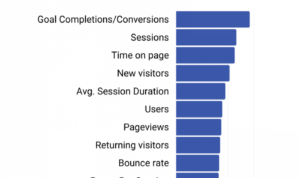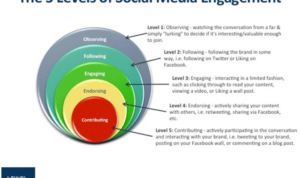Online Community Building kicks off the digital party, showing businesses and organizations how to connect, engage, and thrive in the online world. Get ready to dive into the strategies, engagement tips, and success metrics that make online communities rock!
Introduction to Online Community Building

Online community building refers to the process of creating and nurturing a group of individuals who share common interests, goals, or values in a digital space. This can be done through various online platforms such as social media, forums, or specialized community websites.
Building an online community is crucial for businesses and organizations as it allows them to engage with their target audience on a more personal level, gather feedback, and foster brand loyalty. By creating a sense of belonging and connection among members, online communities can also help in increasing customer retention and driving sales.
Examples of Successful Online Communities
- The Reddit community, with its diverse range of subreddits catering to different interests, has successfully built a large and engaged user base.
- The Nike Run Club app has created a virtual running community where users can connect, share their progress, and participate in challenges together.
- The Salesforce Success Community provides a platform for users to ask questions, share best practices, and network with other Salesforce users, enhancing their overall experience with the product.
Strategies for Building an Online Community
Building an online community requires thoughtful strategies to engage and grow a dedicated group of followers. Let’s explore some effective approaches to foster a thriving online community.
Utilize Multiple Platforms
To reach a broader audience, consider utilizing various platforms such as social media, forums, and websites. Each platform has its unique features and audience demographics, allowing you to connect with different groups of people effectively.
- Utilize social media platforms like Facebook, Instagram, and Twitter to share engaging content, interact with followers, and attract new members to your community.
- Forums like Reddit or Discord provide a space for in-depth discussions, sharing resources, and building a sense of belonging among members.
- A dedicated website or blog can serve as a central hub for your community, offering valuable resources, updates, and a platform for members to connect with each other.
Create Valuable Content
Content creation plays a crucial role in engaging and retaining community members. By providing valuable and relevant content, you can attract new members, keep existing ones engaged, and establish your community as a reputable source of information.
Remember to create a variety of content types, including articles, videos, podcasts, webinars, and interactive posts to cater to different preferences and interests within your community.
- Regularly post high-quality content that resonates with your target audience and addresses their needs, challenges, or interests.
- Encourage user-generated content by soliciting contributions from community members, hosting contests, or featuring member spotlights to showcase their expertise and experiences.
- Engage with your community through comments, likes, and shares to foster a sense of belonging and encourage interaction among members.
Cultivating Engagement in Online Communities

Creating a vibrant and engaging online community requires more than just setting up a platform. It involves fostering connections, encouraging participation, and maintaining a positive environment where members feel valued and heard.
Methods for Increasing Engagement
- Encourage active participation through polls, surveys, and discussions to gather feedback and insights from members.
- Organize virtual events such as webinars, Q&A sessions, or themed discussions to bring members together and foster interaction.
- Promote user-generated content by showcasing member contributions, whether it’s through posts, articles, or creative works.
- Utilize gamification techniques like badges, rewards, or leaderboards to incentivize engagement and recognize active community members.
Creating a Sense of Belonging
- Establish clear community guidelines that Artikel expectations for behavior, respect, and inclusivity to create a safe and welcoming space for all members.
- Foster connections between members by encouraging introductions, networking opportunities, and collaborations on projects or initiatives.
- Empower members to take ownership of the community by involving them in decision-making processes, moderating discussions, or contributing ideas for improvement.
Importance of Moderation and Guidelines
- Implement moderation tools to monitor discussions, address conflicts, and remove inappropriate content to maintain a positive and respectful environment.
- Enforce community guidelines consistently to set clear boundaries and expectations for behavior, ensuring that all members feel safe and respected.
- Regularly communicate with members about updates, changes, or reminders related to community guidelines to reinforce a culture of respect and accountability.
Measuring Success in Online Community Building
Building an online community is just the first step; measuring its success is equally crucial to ensure growth and engagement. By tracking specific metrics, analyzing user feedback, and utilizing analytics, community managers can optimize their strategies for better results.
Key Metrics to Track
- Membership Growth: Keep an eye on the number of new members joining the community over time.
- Engagement Levels: Measure the frequency of interactions, such as likes, comments, and shares, within the community.
- Retention Rate: Monitor how many members continue to actively participate in the community over an extended period.
- Conversion Rates: Track the number of community members who take desired actions, such as making a purchase or attending an event.
Significance of User Feedback and Analytics
User feedback provides valuable insights into the needs, preferences, and satisfaction levels of community members. By collecting and analyzing feedback, community managers can make informed decisions to enhance user experience and drive engagement. Analytics tools offer detailed data on user behavior, content performance, and community growth, enabling managers to identify trends, patterns, and areas for improvement.
Tools for Monitoring Community Engagement, Online Community Building
Social media analytics platforms like Hootsuite and Sprout Social offer in-depth insights into community interactions and content performance.
Google Analytics provides data on website traffic, user demographics, and conversion rates, helping community managers understand user behavior and optimize their online presence.
Survey tools such as SurveyMonkey and Typeform allow community managers to gather feedback from members and assess satisfaction levels to inform decision-making.





